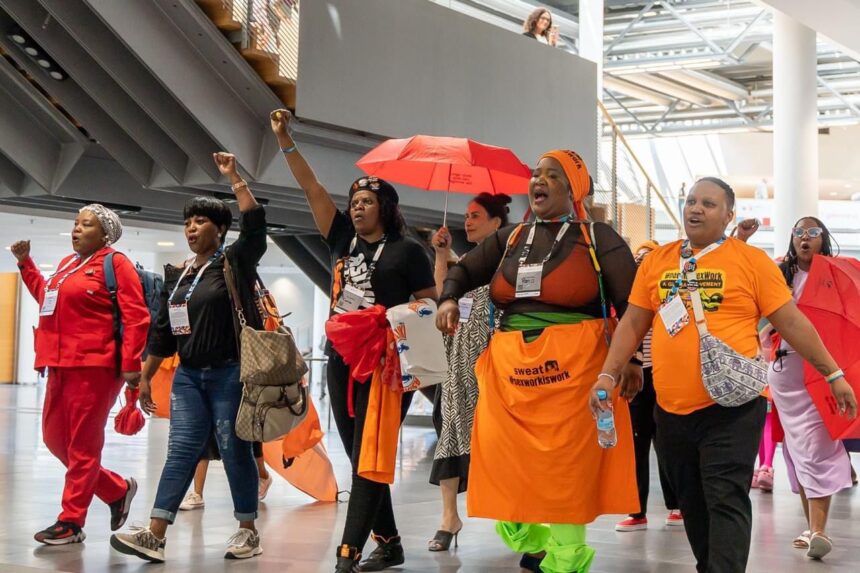You do not get to claim solidarity with the vulnerable while criminalizing their work.
The time for action is now. International Sex Workers Day is not just a day to remember history; it is a call to action for the present and future. The collapse of health services for sex workers in South Africa is not just a tragedy; it is a crime of neglect and abandonment.
As the founder of The African Alliance, a Pan African health justice non-profit, I urge all stakeholders to listen to the voices of sex workers, to recognize their humanity, and to take concrete steps towards decriminalization, funding, data collection, and policy integration.
Sex workers deserve to live and work without fear of violence, abuse, or neglect. They deserve access to healthcare, support services, and legal protection. They deserve to be seen, heard, and valued as equal members of society.
On this International Sex Workers Day, let us stand in solidarity with sex workers around the world. Let us commit to real change, real justice, and real respect for their lives and rights. Let us not forget the lessons of history, the lessons of Lyon in 1975, and let us not repeat the mistakes of the past.
The time for action is now. The time for justice is now. The time for change is now. Let us not wait for another collapse to act. Let us act now, together, in solidarity and in power.
It is a sad reality that in many countries around the world, including South Africa, the Constitution is often invoked as a shield by those in power while they simultaneously violate its promises through criminalisation and abandonment of marginalized communities. This is particularly evident in the case of sex workers, who are often subjected to violence, discrimination, and stigma due to the criminalisation of their work.
Sex workers, like all individuals, are entitled to the same rights and protections guaranteed by the Constitution. However, the criminalisation of sex work not only denies them these rights, but also perpetuates a cycle of violence and invisibility that only serves to further marginalize and endanger them. By criminalising sex work, the state is effectively denying sex workers their right to safety, dignity, and access to justice.
As someone who works closely with sex worker-led organizations and advocates for the rights of sex workers, I have seen firsthand the devastating impact that criminalisation has on their lives. Sex workers are often targeted by law enforcement, subjected to violence and abuse, and denied access to essential services such as healthcare and legal support. This not only violates their human rights, but also undermines the principles of equality and non-discrimination enshrined in the Constitution.
It is time for the state to break this cycle of violence and invisibility by decriminalising sex work and ensuring that sex workers are able to access the support and services they need to live safe and fulfilling lives. This means recognizing sex work as work, and ensuring that sex workers are able to exercise their rights and access essential services without fear of discrimination or violence.
By decriminalising sex work, the state can uphold the promises of the Constitution and ensure that all individuals, regardless of their occupation, are able to live free from violence and discrimination. It is time for the state to choose a path that prioritises the rights and dignity of all individuals, rather than perpetuating harmful and discriminatory practices that only serve to further marginalize and endanger marginalized communities.
It is time for the state to stand up for the rights of sex workers and ensure that they are able to live with dignity and respect. The Constitution promises equality, justice, and human rights for all – it is time for the state to uphold these promises for sex workers as well.








